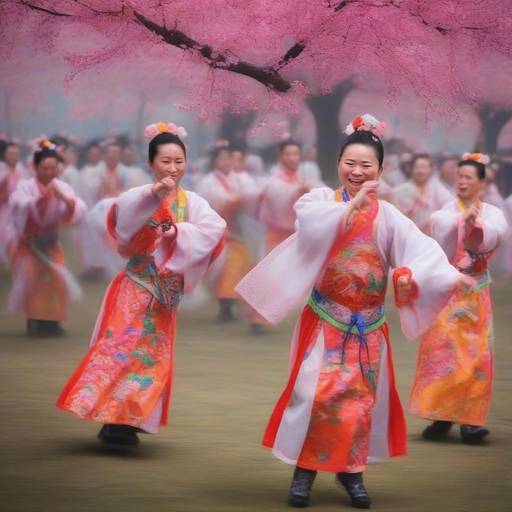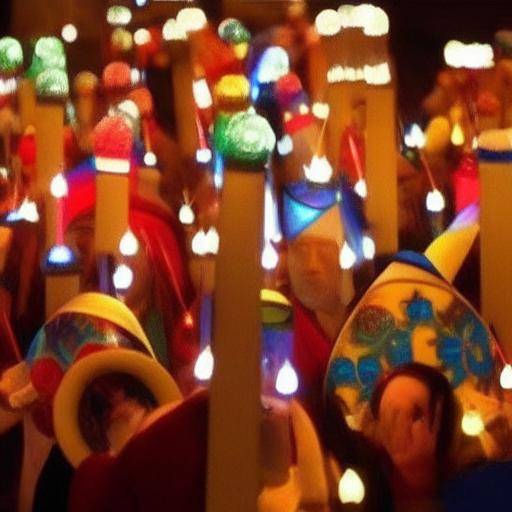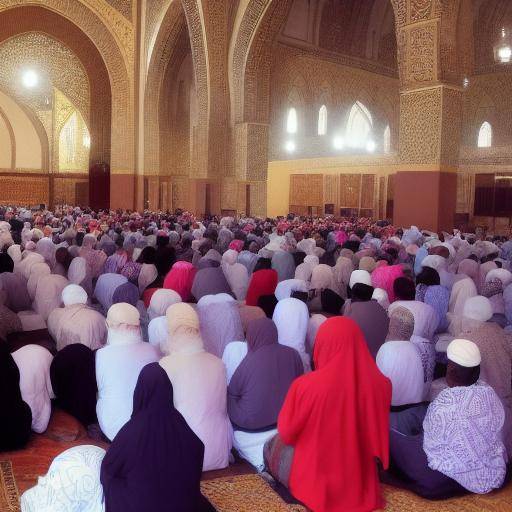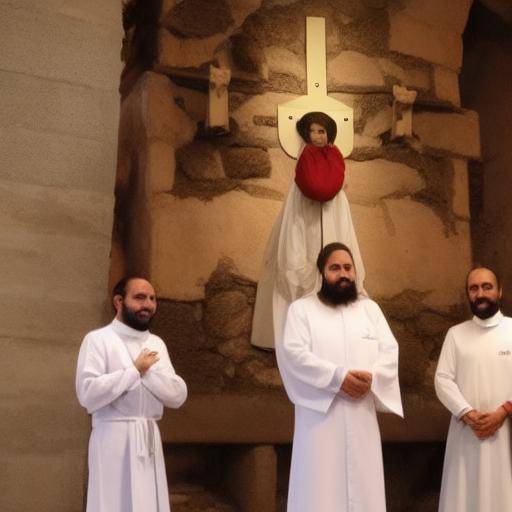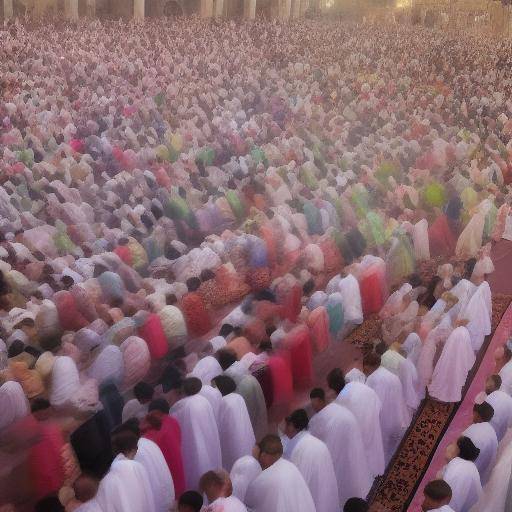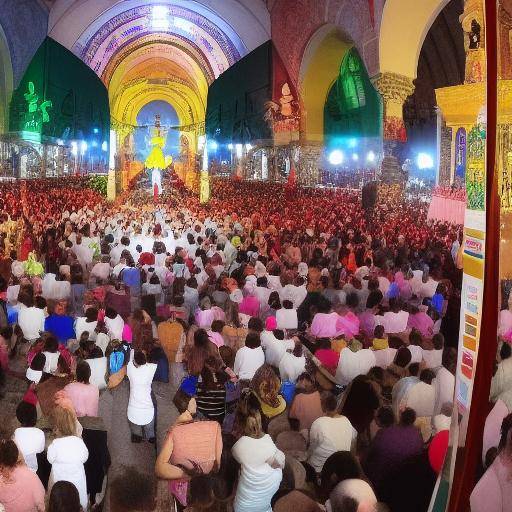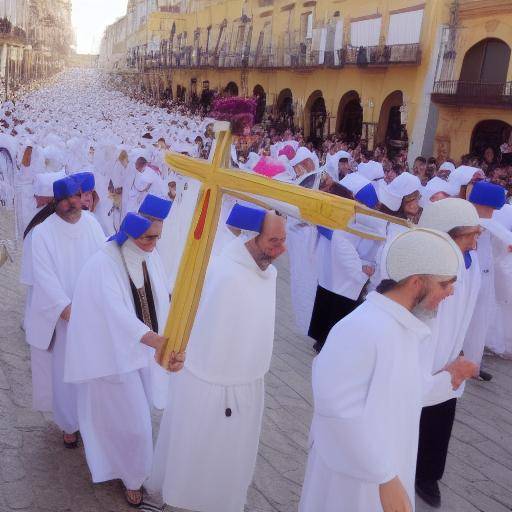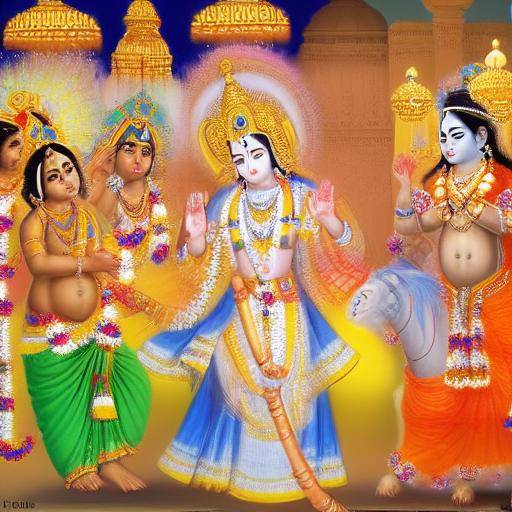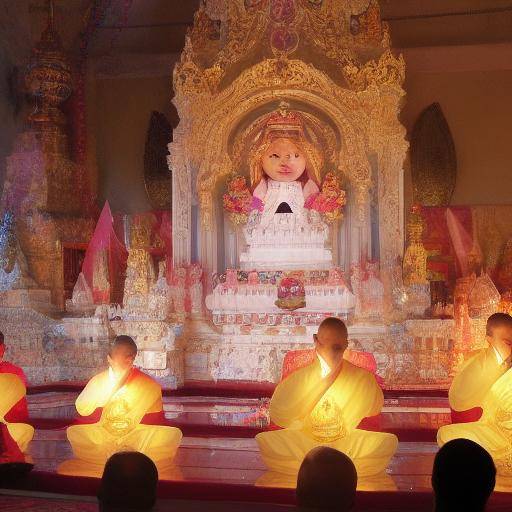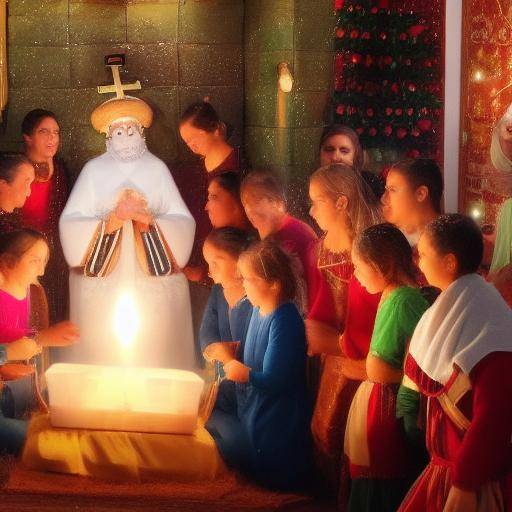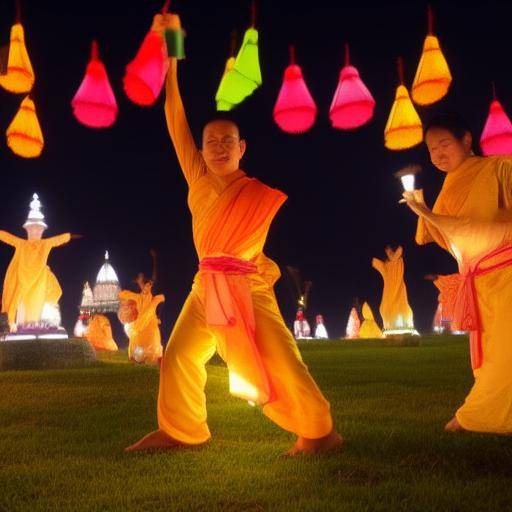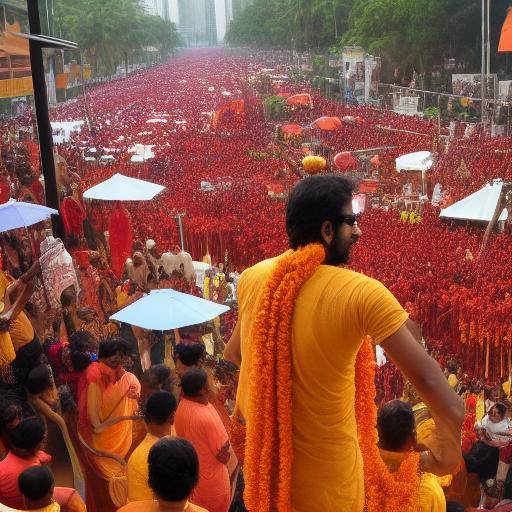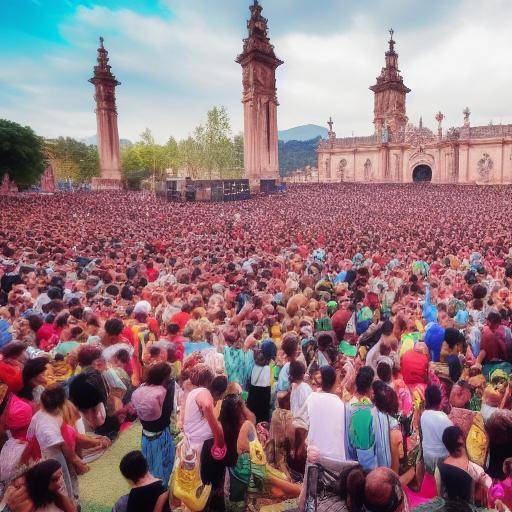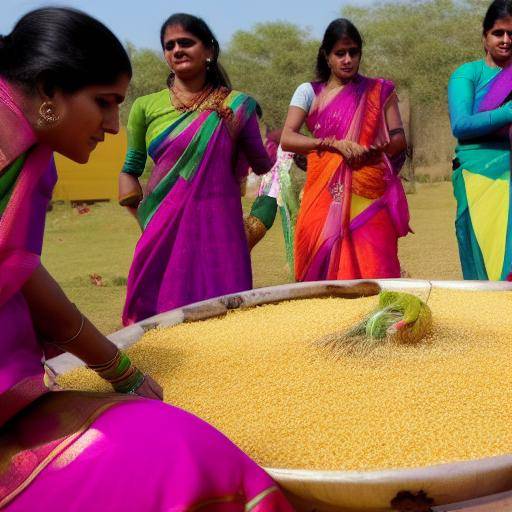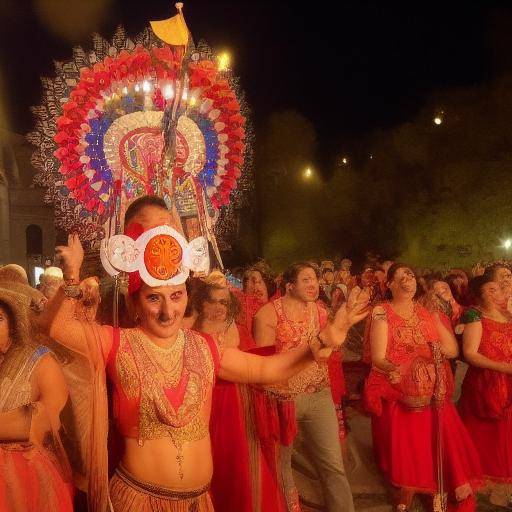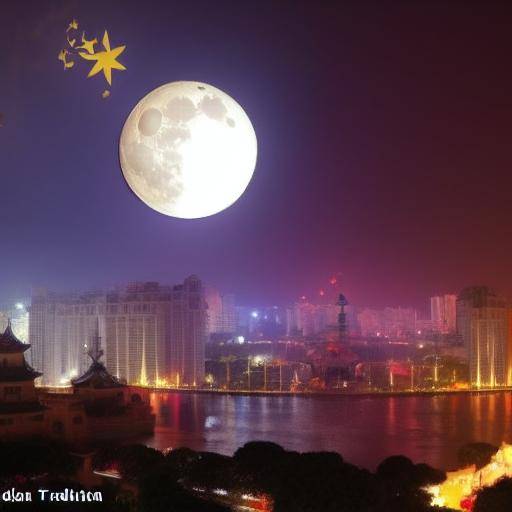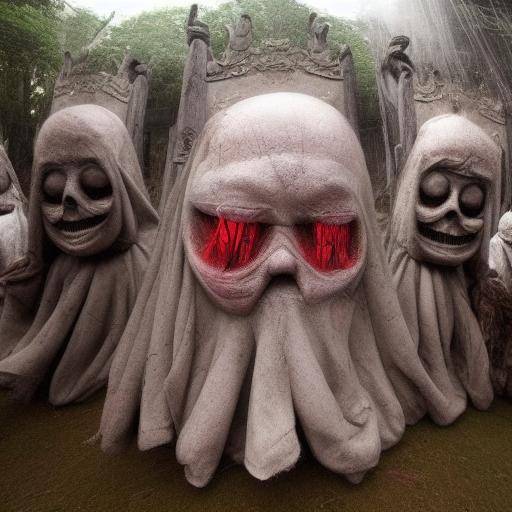
The festival of hungry ghosts, also known as Zhongyuan Jie, is an important holiday in Chinese culture that is celebrated to honor and remember the departed ancestors and spirits. This religious festival, rooted in Chinese tradition, offers a unique window to understand the beliefs, customs and spirituality of this fascinating country. In this article, we will thoroughly explore the festival of hungry ghosts, religious festivals in China, their meaning, history, contemporary practices, and similarities and differences with other celebrations.
Introduction
The festival of hungry ghosts, one of China's oldest traditions, has its roots in Chinese folklore and the teachings of Taoism and Buddhism. During this festival that is held every year on the fifteenth day of the seventh lunar month, it is believed that spirits return to the earth in search of food and entertainment. Practitioners burn incense, make offerings and present theatrical representations to honor their ancestors and provide comfort to the wandering spirits.
History and Background
The festival of hungry ghosts has its origins in ancient Chinese beliefs dating back thousands of years. During the Zhou dynasty, it was believed that, in the seventh lunar month, the gates of the underworld open and the spirits of the dead wander through the earth. Over the centuries, this belief has evolved into the annual festival that is being held today.
During the Han dynasty, elements of Buddhism and Taoism were incorporated into the festival, giving rise to practices such as the elaborate preparation of meals, the burning of golden paper and other offerings to appease the hungry spirits.
In modern times, the festival of hungry ghosts has experienced adaptations to incorporate more contemporary elements, such as theatre shows, competitions and community activities that reaffirm the importance of honoring the ancestors.
Deep analysis
Over the years, the festival of hungry ghosts has maintained its cultural relevance, offering an opportunity to strengthen family ties, remember the importance of tradition and reflect on the connection between the earthly and spiritual world.
Economically, the festival also plays a significant role, as it generates commercial activities, from the provision of ritual articles to the organization of cultural events. However, as China has been modernized, challenges have emerged to preserve the original practices of the festival in the midst of rapid social and cultural change.
Comprehensive review
The festival of hungry ghosts, in its essence, is a ritual celebration that embodies the rich spirituality and the bond with the ancestors who are fundamental in Chinese culture. Although this festival is part of the religious context, it also transcends the borders of the religious, anchoring itself in the identity and history of the Chinese nation.
Comparative analysis
By comparing the festival of hungry ghosts with other religious festivals in China, such as the Chinese New Year or the Dragon Boat Festival, we can appreciate the different manifestations of religiosity and spirituality in this so diverse culture.
Each festival reflects different aspects of the Chinese worldview, from renewal and purification to the veneration of the ancestors and the connection with nature. The coexistence of these festivities offers an integrated vision of the spiritual and cultural complexity of China.
Practical Tips and Accessible Tips
If you want to participate in the festival of hungry ghosts, it is important to know the customcommendations and appropriate practices. Here are some key recommendations:
- Participates in local community activities commemorating the festival, such as theatrical performances or cultural competencies.
- If you are going to make offerings, make sure you know the traditional foods and objects that are considered appropriate to honor the deceased.
- If you have the opportunity, learn about the history and symbolic meaning of the practices associated with the festival. This will allow you to appreciate and respect traditions more deeply.
Industry Insight and Expert Reviews
According to experts in cultural anthropology and religious studies, the festival of hungry ghosts exemplifies the continuity of ancient Chinese spirituality in the contemporary context. This festival not only preserves the memory of the ancestors, but also offers a vision of the Chinese relationship with the past, present and future.
In the words of Dr. Lin Wei, professor of Chinese history at the University of Beijing: "The festival of hungry ghosts serves as a vital reminder of our connection with past generations, celebrating tradition while adapting to the demands of modern life."
Case Studies and Real Life Applications
A notable example of the application of the festival of hungry ghosts is its impact on related industries such as gastronomy and tourism. In many regions of China, during this lunar month, restaurants and hotels adapt their menus and services to attract both locals and tourists interested in participating in the holidays.
This phenomenon is also observed in the art industry, where theatres and performance groups prepare special presentations to commemorate the occasion.
Future Trends and Predictions
In view of the rapid social and economic change in China, the festival of hungry ghosts is likely to continue to evolve to adapt to modern demands. The festival is also expected to become a key point for the promotion of cultural tourism in China.
However, as China moves towards an increasingly globalized future, it is crucial that the authenticity of the festival be preserved and respect for its spiritual and cultural roots is encouraged.
Conclusion
The festival of hungry ghosts in China not only offers an opportunity to honor the ancestors and connect with spirituality, but also represents a vivid example of the complex cultural and religious traditions of the nation. As the modern world advances, this festival reminds us of the importance of keeping alive the memory of those who preceded us.
FAQs
What does the festival of hungry ghosts have in Chinese culture?
The festival of hungry ghosts is a festival in which the ancestors are honored and consolation is offered to wandering spirits. It represents a deep connection with spirituality and life after death in the Chinese worldview.
What is the role of the festival of hungry ghosts in the Chinese economy?
The festival of hungry ghosts has a significant impact on the economy, generating commercial activities related to the production of ritual articles, gastronomy and cultural tourism.
What is the historical importance of the festival of hungry ghosts?
The festival has its origins in ancient Chinese beliefs and has evolved over the centuries, reflecting the cultural and spiritual richness of Chinese history.
How can foreigners participate in the festival of hungry ghosts?
Foreigners interested in participating in the festival can join community activities, respecting traditional customs and practices.
What are some common practices during the festival of hungry ghosts?
Common practices include burning of incense, making food offerings and theatrical shows that evoke scenes from beyond. These activities aim to honor the ancestors and provide comfort to the hungry spirits.
How does the festival of hungry ghosts compare to other Chinese holidays?
The festival of hungry ghosts is distinguished by its focus on honoring the ancestors and meeting the spiritual needs of the deceased, unlike festivities such as the Chinese New Year, which focuses on renewal and good fortune, or the Dragon Boat Festival, which commemorates history and courage.
China, as a millennial country with profound cultural and religious traditions, offers a fascinating panorama of religious and spiritual festivals that reflect the diversity and wealth of its heritage.
Thank you for accompanying us on this fascinating tour of the festival of hungry ghosts in China, as well as for exploring the confluence of religion, culture and spirituality in this amazing nation!

